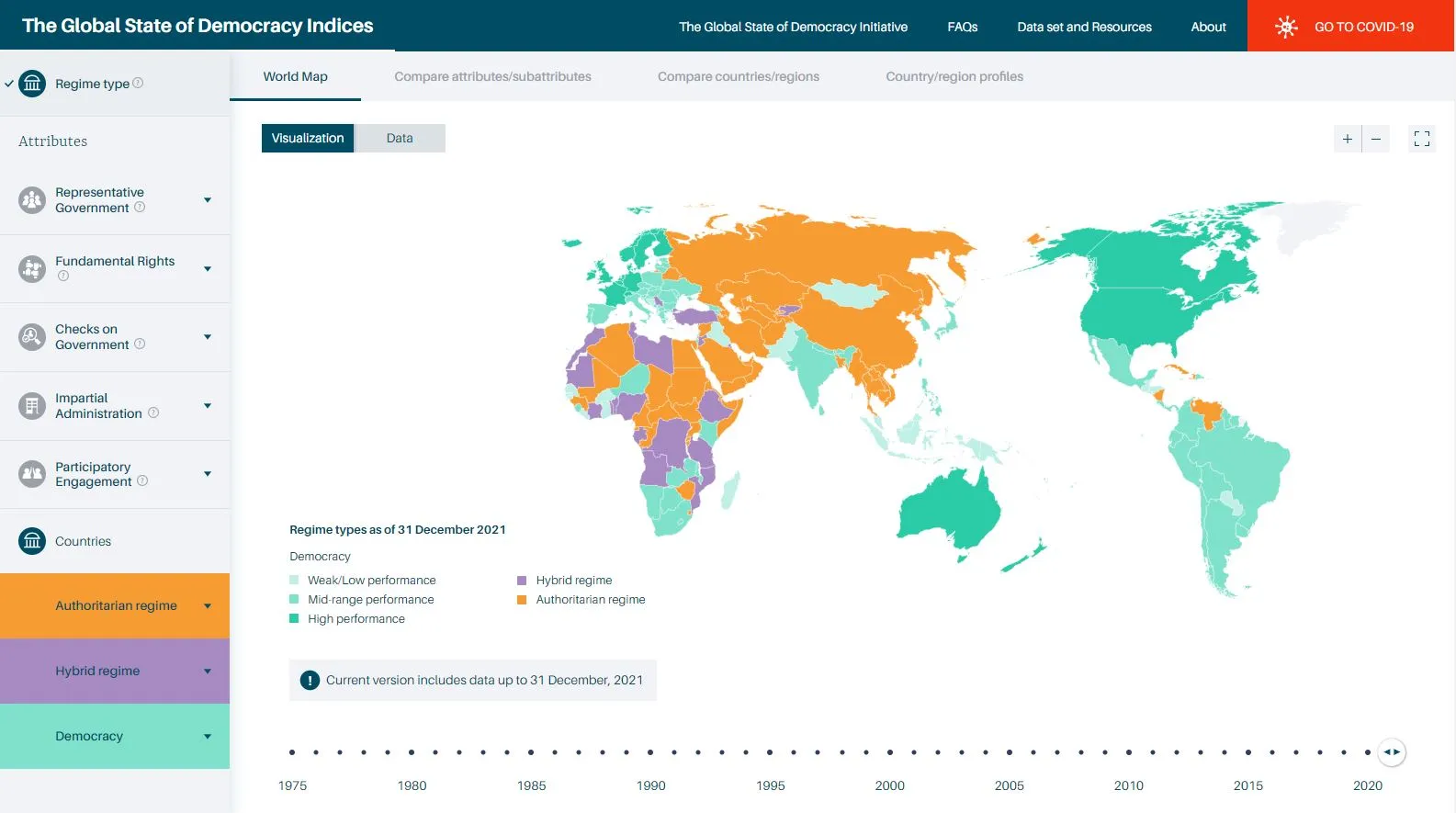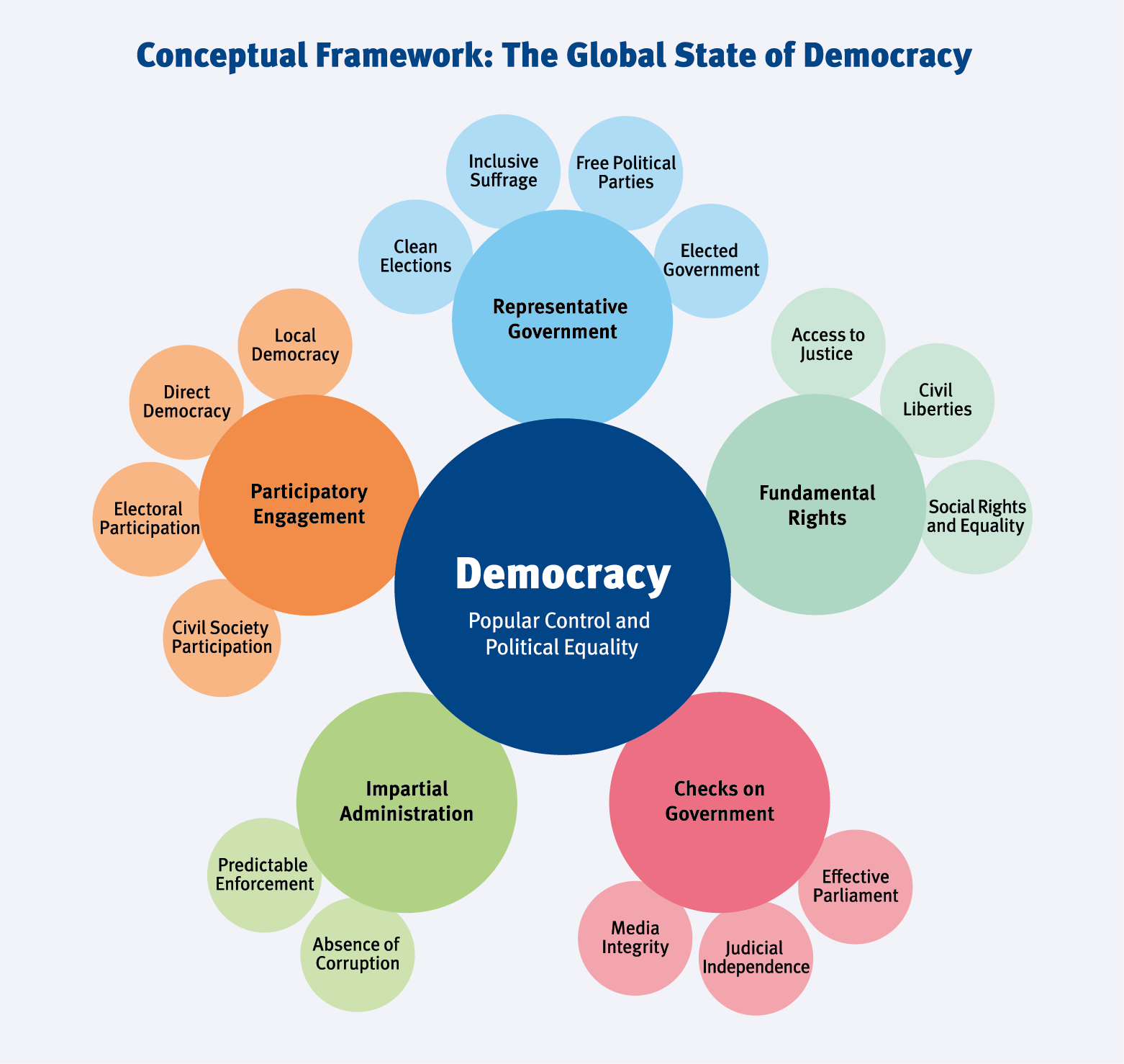How to Assess Democracy: A Guide to Using the Global State of Democracy Indices

Disclaimer: Opinions expressed in this commentary are those of the author and do not necessarily represent the institutional position of International IDEA, its Board of Advisers or its Council of Member States.
Are you a policymaker, journalist, academic or citizen looking to learn more about the state of democracy globally? By now, you have heard that democracy is in decline, but what does that mean in tangible terms? How do patterns differ from one country or region to the next? The newly updated Global State of Democracy Indices can help you understand what is happening along a broad range of measures—from Clean Elections to Gender Equality.
The Basics of the Global State of Democracy Indices
International IDEA’s Global State of Democracy Indices (GSoDI) is a dataset that measures 116 individual indicators of 173 countries’ democratic performance. The GSoDI’s unique framework draws on 12 high-quality sources to produce a rich and methodologically robust dataset. Instead of ranking countries on a unidimensional index, the GSoDI comprises five main attributes—Representative Government, Fundamental Rights, Checks on Government, Impartial Administration and Participatory Engagement—and 16 subattributes, all related to different aspects of democracy. This allows for a nuanced analysis of democratic performance, based on the belief that no single ideal type of democracy exists. The use of multiple datasets also mitigates the risk of bias.

The GSoDI was launched in 2017 and is updated annually, with data available from 1975 through 2021.
How do I use it?
Let’s look at how Zambia, one of the African countries that went to the polls last year, has performed recently compared to the regional and sub-regional average.
The 2021 Zambian general elections resulted in a victory for the opposition leader, Hakainde Hichilema and his United Party for National Development, who defeated incumbent Edgar Lungu of the Patriotic Front. While the campaigning leading up to the election was marked by political violence, the election itself was considered “peaceful, transparent and professional” by international observers. This is reflected in the GSoDI by a significant improvement in the subattribute of Clean Elections, a measure of the extent elections are free from irregularities such as biased voter registration and voter intimidation. It currently ranks above the regional and sub-regional average in this measure. This has resulted in Zambia now being classified as a democracy, compared to a hybrid regime last year. Zambia has also seen significant improvements in Freedom of Expression and Access to Justice since 2020 as well as a significant improvement in Media Integrity in the last five years.
President Hichilema has vowed to respect the rule of law and free media, but it remains to be seen to what extent Hichilema’s government differs from the authoritarian practices of Lungu.
While democracy at large is in decline globally, the GSoDI enable users to identify unique trends. In Sri Lanka, which is in the midst of the worst economic crisis since it gained independence, the GSoDI can help put things in context.
It is clear, for instance, that the end of the civil war in 2009 marked the beginning of an upward trend in Fundamental Rights but that the last five years have been marked by worrying dips, mainly in Impartial Administration and Checks on Government. These trends correspond to increasingly centralized executive power and allegations of corruption in some of the highest government offices.
Explore the data with interactive tools here: GSoD Indices
Download the latest version of the dataset, along with the codebook, methodology and technical procedures guide here: Data Resources.




